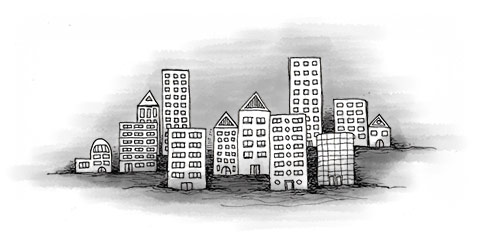Contract: Dutch law is very pro tenant. A Dutch tenancy agreement can be for an indefinite or fixed period of time. Usually you will have a one month termination notice period. The agreement can only be terminated by the tenant. A tenancy agreement is usually written, though oral agreements are valid as well. It is, however, strongly advised to get a written agreement. Be sure to read the contract carefully and ensure everything is clear.
If the contract specifies inventory (dishes, linen, etc.), make sure the items are there. In addition, ensure that all electrical appliances and utilities are in good working order. Never accept a verbal guarantee that defective items will be fixed later. Get it written down in the contract or get it fixed immediately.
Utilities: Depending on the landlord, utility expenses or other service costs may or may not be included in the rent. Service costs usually cover general maintenance and sometimes one or more of the utilities. Ask which items you will have to pay for separately (i.e. gas, electricity and water bills).
Deposit: Most landlords ask for a security deposit (Borg) of 1 month and sometimes 2 months if the flat is furnished. Anything more than this should be avoided. You also may be able to negotiate the conditions concerning the return date of the deposit or try to use it for paying the last month’s rent.
Other guarantees: Given that Holland's legal system does not offer strong protection for property owners, it is very common for landlords to ask for additional guarantees. If you are working, a copy of a payslip (Salarisstrook) is requested as proof that your monthly salary exceeds the rent.


